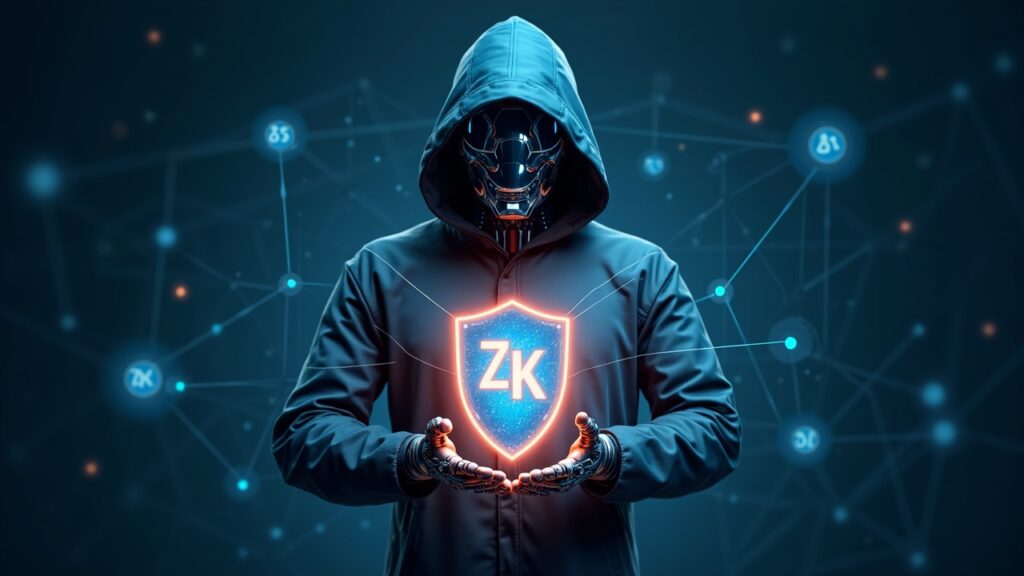The absence of a verifiable cryptographic identity for autonomous AI agents exposes networks and services to impersonation, manipulation and systemic loss of trust. Zero-knowledge proofs (ZKPs) emerge as the technical architecture capable of attesting identity, compliance and processes without revealing sensitive data, with direct implications for security and adoption in digital markets. The reviewed text points to practical cases and early implementations moving toward enterprise deployments.
An AI agent that operates without a verifiable identity is equivalent to authorizing a masked stranger to make decisions about sensitive data; that increases the attack surface and the risk of fraud, the reviewed analyses indicated. ZKPs allow an agent to prove its origin, mandate and authorization to execute tasks without exposing private identifiers, which reduces the possibility of impersonation and improves operational traceability.
For users and treasuries integrating agents into automated flows, this means lower risk of unauthorized access and greater auditability.
The reviewed text points to practical cases that reduce the risk of manipulations affecting users and counterparties. For example, an automated financial advisor could demonstrate regulatory compliance without revealing portfolios, and an autonomous vehicle could prove that its model was trained with diverse, unbiased data without exposing its internal architecture.
How ZKPs enable private and decentralized operations
ZKPs reduce exposure of corporate data by enabling verifications of training integrity and compliance without sharing datasets or proprietary parameters. In identity verification and KYC scenarios, reductions in exposed data of up to 97% and improvements in fraud detection with accuracy figures of 96.7% are cited; these metrics describe the potential scale of operational risk reduction for platforms and custodians.
At the architecture level, decentralized identity protocols (DIAP) can anchor immutable identifiers to distributed storage systems like IPFS/IPNS, delivering a layer of trust that does not depend on a central authority. The combination of ZKPs with decentralized paradigms facilitates interoperability among agents in different domains, which affects the liquidity of automated services and the interoperability of crypto infrastructures.
The field of ZKML —proofs of veracity for models and AI computations— enables verifying computational results without revealing inputs or model weights, protecting intellectual property and user privacy, and mitigating reputational risk for companies deploying agents in production.
Adoption and practical implementations are already emerging. The report mentions initiatives and tools that seek to operationalize these ideas, including Self Protocol and Humanity Protocol for personhood verification, and platforms and SDKs like JSTprove, Flare AI Kit, Hedera AI Studio and Giza to develop verifiable agents. These implementations constitute the first step toward enterprise deployments and regulated products, with direct impact on how treasuries, custodians and derivatives services will integrate agents.
Verifiable identity reduces the risk of impersonation and improves traceability. ZKPs allow compliance verifications without exposing sensitive data. ZKML certifies AI outputs while preserving IP and privacy. Cited SDKs and protocols are moving the technology toward practical adoption.
Zero-knowledge proofs offer a technical path to provide identity and accountability to autonomous AI agents, reducing data exposure and increasing auditability.


